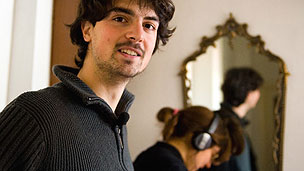We all know Wikipedia. We use it in our everyday life and it is the one of the most popular websites with 21 billion hits per month worldwide. [1]
Even though we find it so straightforward today, let me ask you a question: imagine someone coming to you 20 years ago and saying: “Hey, I have a brilliant idea, we can write an encyclopedia, but we will not write it with our hands, we will find several million people that will write it for free only because they want to share their knowledge. Not only will they do it for free, but also none of them will be in charge of anything and every single person in the world will be able to change any word or picture in any article. Look, I know that it may sound strange, but I’m sure of it. We will defeat Encarta, and our work will be almost as reliable as Britannica [2]. People will love us, they will start to trust us. And we will survive with a bunch of employees and donations of average size around 40 dollars. If only one out of 800 readers would give us 15 dollars each year we will make it. And let me tell you one more thing: we are doing this for free!”
Now, would you have believed in this idea?
I wouldn’t have, and I would have been wrong. But Wikipedia played a major role in the knowledge revolution we are currently seeing.
The question is: “Can we do more? Can governments do more?” and the answer is “Yes, sure.” [3].
Information is good, shared information is better
At the basis of the idea there is the fact that sharing information is far better than keeping it for yourself. See Fig. 1.
When two people helpfully share their knowledge and experience, both of them usually gain something from the interaction. In the best case they change their mind, in the worst case their old idea is strengthened.
The idea
Today students write their thesis in order to get a degree. They put enthusiasm and a great effort in their work. But most of the time those theses will be read by very few people, usually other students looking for introductory and comprehensible information on a very specific topic.
Each thesis is composed mainly of two parts:
1st an introductory part with definitions and concepts useful for understanding the topic, and
2nd an innovative part in which the student describes his research work.
The introductory part contains information suitable for a less specialized audience and usually is a good starting point for further research. On the other hand, the innovative part contains information potentially useful to experts in the subject.
The idea is:
– To remove the introductory part of the thesis and substitute it with quick links to Wikipedia articles and sections. The student will contribute to those articles and sections with an equivalent work as if he/she had written a standard introductory part.
The work will be promptly available to the whole society instead of being accessible only by other researchers and students who know about the thesis.
The idea is shown in Fig. 2.

Figure 2: Standard vs Wiki-Endorsing thesis. A Wiki-Endorsing thesis can be written with the same effort that a Standard thesis. Of course timing depends on the kind of thesis and on the subject.
Let’s describe the idea with an example.
Mr. Lenzo is doing a PhD in robotics and he will work for 12 months writing his thesis about wearable robots. After 10 months of study and research, Mr. Lenzo is ready to spend the last 2 months writing his thesis. He has 2 options. The first option is writing a standard thesis, spend 1 month writing the introductory part and 1 month writing the innovative part. The second option is writing a Wiki-Endorsing thesis, spend one month reviewing Wikipedia and 1 month writing the innovative part. In the first case his work will be read by very few people. Conversely, with a Wiki-Endorsing thesis his work will be appreciated by everyone who is interested in the topic.
Of course Mr. Lenzo will have to demonstrate his work on Wikipedia by showing the articles before and after his contributions. Easy to use software tools such as WayBackMachine [4] and Wikitrust [5] will avoid cheating and will help the supervisors in checking the quality of the student’s work.
The Wiki-Endorsing thesis contributes more to the society than the Standard thesis. The student and the supervisors feel much more satisfied with their work and the society benefits the most from it.
Is this really feasible? How can Italy contribute to it?
Yes! This is possible. Now. At least in Italy.
Alberto Di Minin, who cooperates with the Italian ministry of education says that the Italian laws already allow the Wiki-Endorsing thesis.
How?
The student, together with the supervisors and the potential readers agree to write a Wiki-Endorsing thesis. And the student does it.
Of course everything is much easier if the university managers and the leading professors make the first move.
Comments
We would love to receive your feedback. Write to us on our facebook page “Wiki-Endorsing Thesis”, or Twitter #wikiendorsingthesis.
Unfortunately comments on this page are closed due to spam issues.
References
[1] http://wikimania2014.wikimedia.org/wiki/Sandbox
[2] http://en.wikipedia.org/wiki/Reliability_of_Wikipedia
[3] http://wikimania2014.wikimedia.org/wiki/Main_Page/Future_of_Education
[4] http://archive.org/web/
[5] http://en.wikipedia.org/wiki/WikiTrust
About the author
Antonello Cherubini, 26, is a PhD student in Airborne Wind Energy at Scuola Superiore Sant’Anna. He got his MSc in Mechanical Engineering at Politecnico di Milano in 2012 and he has always been interested in politics and education.
